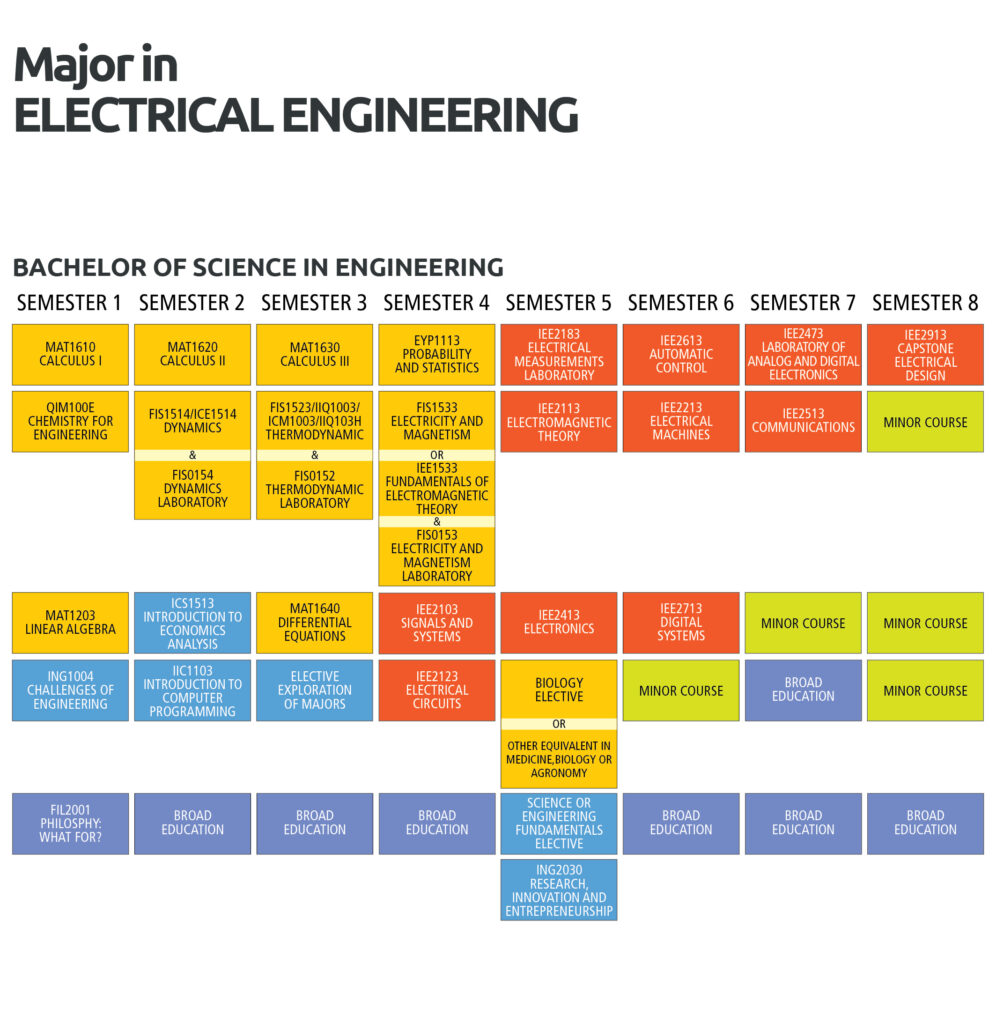

The Major in Electrical Engineering combines a solid education in the basic physical sciences and mathematics with the professional skills needed for electrical and/or electronics engineering, with a strong specialization in one of the following areas: Automation and Robotics, Electric Energy, Biomedical Engineering, Microelectronics, and Communications, and Astronomical Instrumentation.
This course will allow students to obtain a general vision of the Major in Electrical Engineering and the areas of knowledge that are studied.
The graduates of Bachelor of Science in Engineering with Major in Electrical Engineering will be able to find employment in most of the economic sectors in the country (e.g. mining, forestry, services, etc.). Among the 20 most relevant advancements in the last century, several are directly related to the field of electrical engineering, including electrification, electronics, radio and television, computers, telecommunications, the internet; image processing, domestic appliances, health technologies, lasers, and fiber optics.
However, the remaining achievements on this top-20 list also use or require, to varying degrees, knowledge of electrical engineering. They include automobiles, airplanes, the supply and distribution of drinking water; the mechanization of agriculture, air conditioning and refrigeration, highways, spaceships, oil/petrochemical technologies, nuclear technologies, and high-performance materials.
“Electrical engineering has been and will continue to be a fundamental discipline for the advancement of our society. Come and share this journey towards the future with us,” Christian Oberli Graf

Contact: majoringenieriaelectrica@ing.puc.cl
This recommended curriculum is subject to modifications in accordance with current academic planning at the time of course enrollment. Stay informed as to the most recent updates to the Academic Plan.